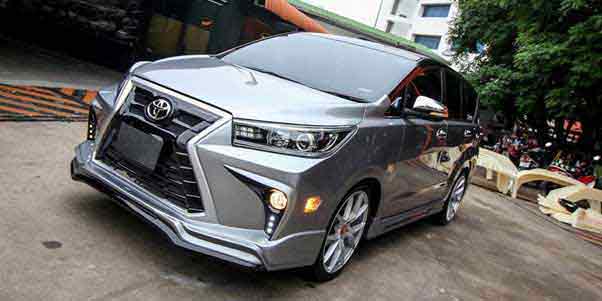
The Supreme Court of India declared vehicle modification illegal in January 2019. However, not all car modifications are illegal. You can modify your vehicle without becoming an outlaw. So, let us take a look at some de jure vehicle modifications. In India, there is a lot of misunderstanding about modification laws. This also includes information on the limitations that exist when it comes to modifying cars.
1. Upgrading tyres
You have the legal right to upgrade your tyres as long as the new set of tyres meets the manufacturer's specifications. However, when upgrading tyres, make sure they have the same or higher speed rating and load index as the stock tyres. If the new tyres have a wider section width, the sidewall height must be reduced. You can also get a variety of tyre types and compounds for your vehicle.
2. Repainting
It is permissible to have your car painted in the same colour. If you intend to change the colour, you must first obtain RTO approval. This is done to reduce the number of criminal offences that can be concealed by painting a car a different colour. However, don't get your car painted in Army Green. Olive Green is only used for military purposes in India.
3. Changes in Structure
No structural modifications are permitted on any vehicle. If you want to extensively modify the structure of the car, you must obtain permission from the ARAI, which is not easy to obtain. You must provide a legitimate reason for the modification, and the car will not necessarily be road-legal.
4. Horns
It is permissible to install horns. The horn should not be louder than 80 decibels. Multitone and musical horns are strictly forbidden. We recommend that you choose a loud horn with caution and use it with even greater caution.
5. Wrapping the body
Your car's paint job will not be harmed by a Body-Wrap. A vinyl wrap, on the other hand, can protect the factory paint. This car modification could cost you anywhere between 10,000 and a lakh rupees. However, if properly applied, a body wrap can last for more than 5 years. It is perfectly legal to wrap your car in vinyl. Furthermore, unlike a complete paint change, you do not need to get it pre and post-approved by the RTO.
6. Engine swapping
This must be done with prior notification and approval from the RTO. The new engine as well as the vehicle must be inspected. Furthermore, the new engine cannot be larger than the original capacity of the engine sold by the manufacturer. Tuning the engine also necessitates prior RTO approval and inspection at a later stage.
7. Suspension upgrade
You can improve the quality of your drive by getting a better suspension for your car. However, lowering the car too much can be dangerous. Increasing the ride height by a few inches would do the same thing. Modifications such as installing anti-roll bars can help reduce body roll when turning. This results in a more stable ride. Upgrade to coil overs and aftermarket shocks to improve suspension, increase stability, and reduce body roll.
8. Window tinting
The country's Supreme Court banned heavily tinted windshields and vehicle windows in 2012. Because tinted glasses make being inside a car in the summer more bearable, they have become almost indispensable. As a result, the majority of us seek ways to circumvent this law. In addition, vehicles such as the Maruti Suzuki Baleno come standard with UV-tinted glass. According to the Motor Vehicles Act of 1998, it is still legal to use tint that allows more than 80% of light to pass through (to be on the safer side). Darker sun films that do not comply with this should be avoided.

9. Changes for the Differently Abled
Acclimating vehicles for those with disabilities would allow them to drive on their own and be self-sufficient. Adapted mirrors, wheelchair lifts, automatic or hand-operated clutch, accelerator, or brakes, and other similar modifications can make a vehicle accessible to them. Any car, including the Alto, Swift, and many others, can be modified to accommodate physically challenged people. All of this means you can make a lot of changes to your car while still staying within the law. As a result, you can do a lot with your car and personalise it as long as you don't turn it into a 230-inch-long Batmobile.
10. Aftermarket Accessory Restriction
The majority of the modifications listed below must be carried out within the permissible limits. Bullbars and other aftermarket accessories are a hindrance to the car's safety mechanism. Adding IRVM screen mirrors is also not permitted. Other modifications, such as door guards, body kits, and rain guards, can be added to your vehicle. The number and structure of seats in a car cannot be changed. It must be kept in stock. Also, while adding aftermarket steering wheels is not permitted, a leather wrap or add-ons to the steering wheel are.
11. Wheels and tyres
Both the wheels and the tyres should not be excessively large. It is completely illegal if they protrude from the wheel arch or have spaces. The wheel modification law has been left vague so that a person can easily upgrade his base variant car to a top variant if necessary. Under the modification laws, changing the exhaust is illegal. We still see a lot of cars with modified intake and exhaust systems, which could result in hefty fines if caught.
Conclusion
Overall, there are many barriers to car modification in India, but we have seen our aftermarket thrive in the performance, luxury, and fabrication departments. Even with archaic modification laws, people have a lot of tastefully modified cars, and if a low profile is maintained, there is no issue with an enthusiast enjoying his car and not breaking speeding laws or causing a misdemeanor incident. Modifying your car must be done with the assistance of an expert, and you must ensure that you do so and use it without attracting the wrath of the police.